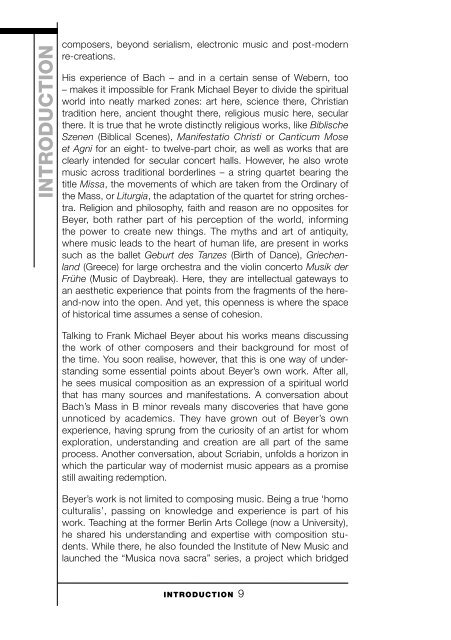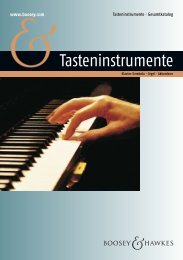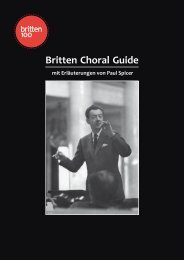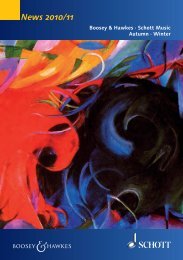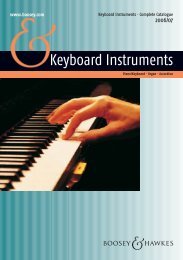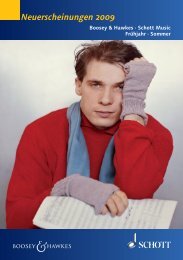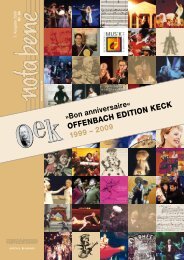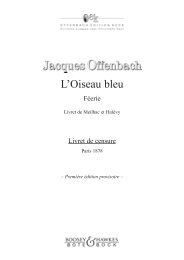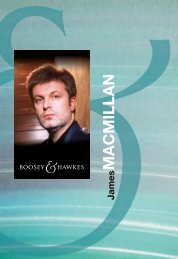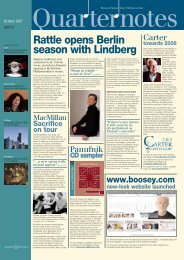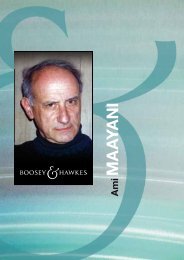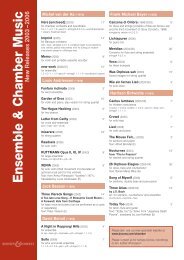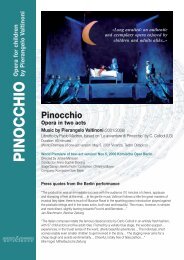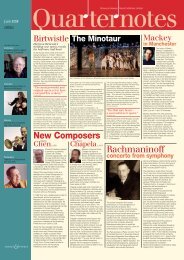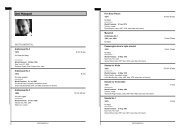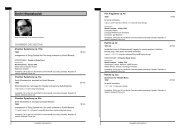Create successful ePaper yourself
Turn your PDF publications into a flip-book with our unique Google optimized e-Paper software.
INTRODUCTION<br />
composers, beyond serialism, electronic music and post-modern<br />
re-creations.<br />
His experience of Bach – and in a certain sense of Webern, too<br />
– makes it impossible for <strong>Frank</strong> <strong>Michael</strong> Beyer to divide the spiritual<br />
world into neatly marked zones: art here, science there, Christian<br />
tradition here, ancient thought there, religious music here, secular<br />
there. It is true that he wrote distinctly religious works, like Biblische<br />
Szenen (Biblical Scenes), Manifestatio Christi or Canticum Mose<br />
et Agni for an eight- to twelve-part choir, as well as works that are<br />
clearly intended for secular concert halls. However, he also wrote<br />
music across traditional borderlines – a string quartet bearing the<br />
title Missa, the movements of which are taken from the Ordinary of<br />
the Mass, or Liturgia, the adaptation of the quartet for string orchestra.<br />
Religion and philosophy, faith and reason are no opposites for<br />
Beyer, both rather part of his perception of the world, informing<br />
the power to create new things. The myths and art of antiquity,<br />
where music leads to the heart of human life, are present in works<br />
such as the ballet Geburt des Tanzes (Birth of Dance), Griechenland<br />
(Greece) for large orchestra and the violin concerto Musik der<br />
Frühe (Music of Daybreak). Here, they are intellectual gateways to<br />
an aesthetic experience that points from the fragments of the hereand-now<br />
into the open. And yet, this openness is where the space<br />
of historical time assumes a sense of cohesion.<br />
Talking to <strong>Frank</strong> <strong>Michael</strong> Beyer about his works means discussing<br />
the work of other composers and their background for most of<br />
the time. You soon realise, however, that this is one way of understanding<br />
some essential points about Beyer’s own work. After all,<br />
he sees musical composition as an expression of a spiritual world<br />
that has many sources and manifestations. A conversation about<br />
Bach’s Mass in B minor reveals many discoveries that have gone<br />
unnoticed by academics. They have grown out of Beyer’s own<br />
experience, having sprung from the curiosity of an artist for whom<br />
exploration, understanding and creation are all part of the same<br />
process. Another conversation, about Scriabin, unfolds a horizon in<br />
which the particular way of modernist music appears as a promise<br />
still awaiting redemption.<br />
Beyer’s work is not limited to composing music. Being a true ‘homo<br />
culturalis’, passing on knowledge and experience is part of his<br />
work. Teaching at the former Berlin Arts College (now a University),<br />
he shared his understanding and expertise with composition students.<br />
While there, he also founded the Institute of New Music and<br />
launched the “Musica nova sacra” series, a project which bridged<br />
INTRODUCTION 9


